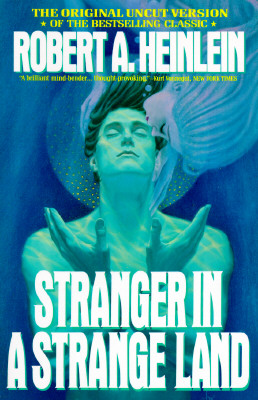Orson Scott Card writes, “So they’ve gone and killed “Star Trek.” And it’s about time.” As long as it’s the twisted wreck of Star Trek that Rick Berman is creating, I agree whole-heartedly with him. However, I am still mourning the end of Star Trek: the Next Generation — the only Gene Roddenberry version that … Continue reading “star trek is dead”
Orson Scott Card writes, “So they’ve gone and killed “Star Trek.” And it’s about time.” As long as it’s the twisted wreck of Star Trek that Rick Berman is creating, I agree whole-heartedly with him. However, I am still mourning the end of Star Trek: the Next Generation — the only Gene Roddenberry version that was allowed to grow and develop over time.
As Card points out in his commentary, TOS was hampered by television convention of its time, and the characters were never able to truly develop in the show, although I would argue that the published book series provided ample opportunity for that to happen. I will also concede that TOS was not necessarily good science fiction, particularly compared to what was being written at the time. However, Roddenberry never intended to be a science fiction writer. His experience was with the Western genre. As it has been quoted many times, Star Trek was meant to be a “Wagon Train to the stars.”
Twenty-odd years later, Star Trek fans were given a new generation of characters and plot lines. I grew up watching re-runs of TOS, but I wasn’t a fan until I saw TNG. Back in 1988, I was a geeky junior high kid with few friends and too much time for watching TV, but I found solace in this vision of the future presented to me by Roddenberry and the script writers for TNG. It was my interest in this television show that introduced me to the science fiction genre. I would not have read any of Clark’s books had I not first come to love Picard, Data, Yar, and all of the rest of the ST:TNG characters.
So I say to you, Mr. Clark, do not look down your nose and scoff at the demise of the Star Trek universe. Be grateful to it for making science fiction accessible to the general public, and for paving the path to those series that you deem to be good science fiction.
Thanks to Bookslut for the heads-up.

